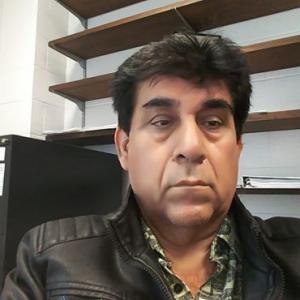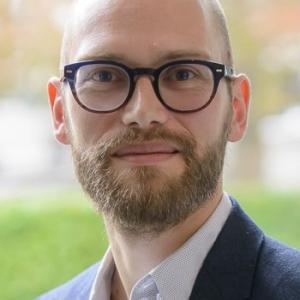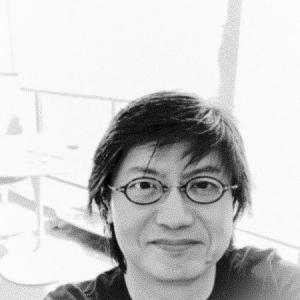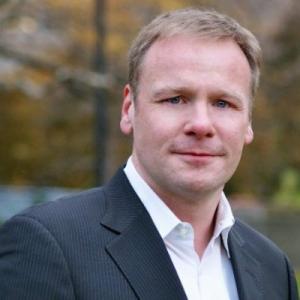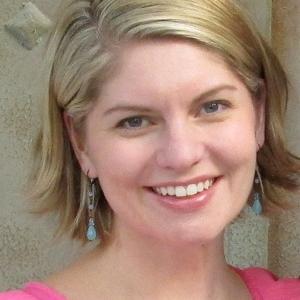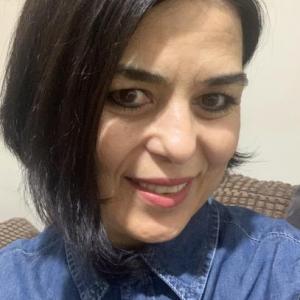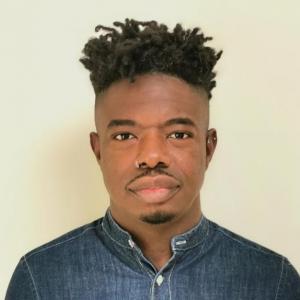Short description:
Dr. Sirvan Karimi has written his doctoral dissertation on Comparative social policy in Canada and Australia. His PhD dissertation is titled; Social Classes, National Settings, and the Welfare State: The Public Pension Systems in Canada and Australia. His research focuses on Canadian politics, public policy, public administration, and public law . In addition to publishing several scholarly articles, he is the sole author of two scholarly books; Beyond the Welfare State: Postwar Social Settlement and Public Pension Policy in Canada and Australia. Toronto: University of Toronto press, 2017 and The Tragedy of Social Democracy. Winnipeg: Frenwood Publishing, 2015,
He is currently working on research papers related to democratic administration, collective bargaining in Higher Education Settings, the interplay of Charter and Federalism , and Liberalism, Charter and Social Rights.
Dr. Karimi has been teaching courses at both graduate and undergraduate levels since 2007. In addition to teaching at York University, he has also taught courses at Brock and Ryerson Universities. He has been teaching courses along all three streams (Public Policy, Public Administration and Public Law) within the School of Public Policy and Administration curriculum. He has also supervised MRPs for several MA students in the Master of Public Policy, Administration and Law (MPPAL) program.
Dr. Karimi has been recognized for his teaching efforts with a variety of teaching nominations and awards, including being nominated for the President's University-Wide Teaching Award for 2013-2014 and receiving the Dean's Teaching Award for Excellence in Teaching in the Faculty of Liberal Arts &Professional Studies for 2015-2016.
Short description:
I am a Lecturer in Equality Studies at the School of Social Policy, Social Work and Social Justice, University College Dublin. My academic qualifications are in Law and Social Policy and my research interests lie in the area of childhood inequality. My research to date has engaged with various areas of law and policy affecting children and I have a particular interest in the application of governmentality theory to the study of childhood inequality and in the discourses of childhood which shape law and policy for children. Over the past year I have been mainly been focused on collaborative research on the support needs of refugee children, young people and families and am currently involved in research projects on refugee family reunification and refugee integration.
Short description:
I am Assistant Professor for Comparative Social Policy. At UCD I teach in the BSocSc Social Policy and Sociology and the Master of Public Policy. By background I am a political scientist and mixed-methods researcher. My research focusses on the privatisation and marketisation of social policies. This includes private pensions, private schools, school choice, housing wealth, inheritances. More recently, I have worked on large families, housing precariousness and family policies (e.g. paternity leave) as well as long-term care funding.
Short description:
Researcher with strong interests in social inclusion; worked on nomadic pastoralists and education inclusion in India, Kenya, Afghanistan, Ethiopia. Also experience of primary teacher education and participatory professional development in India. Currently working on education planning and policy reform in Mongolia.
Short description:
I aspire to make creative use of our collective understanding of progressive taxation and public expenditures to argue for redistributive design in public policy responses to challenges arising from income and wealth inequalities. As my very modest attempt to make a contribution to public discourse in this age of disinformation, I explore the battle of ideas policy advocates wage on the costs and benefits of progressive taxation and public expenditures, the political commitment people are willing to make to level the playing field between the Haves and Have-nots and the policy options citizens can consider to hold the plutocrats, the oligarchs and the rest of the power elite accountable to democratic ideals.
Short description:
Matthias is Director of Innovation Economics at MaRS Data Catalyst and a teaching faculty member at the University of Toronto's Munk School of Global Affairs and Public Policy. Over the past eight years he has conducted in-depth research on the Future of Work in the context of Canada’s labour market. Matthias has over 16 years of experience in empirical economic and statistical analysis working at think tanks, in academia, as well as the private and the public sector. He has lived and worked in Germany, the UK, India and Canada. He has designed and delivered numerous workshops, lectures and presentations on matters of economic policy to a variety of audiences. Matthias holds a PhD in Economics from the Johannes-Gutenberg University Mainz, Germany and a Master’s degree from the University of Oxford, UK.
Short description:
Stephanie Begun joined the Factor-Inwentash Faculty of Social Work as an Assistant Professor in July 2017. Prior to this, Stephanie completed her doctoral training at the University of Denver’s Graduate School of Social Work where her externally-funded dissertation focused on homeless youths’ family planning attitudes, experiences, and social network influences. Stephanie also served as Co-PI on a federal-funded (U.S.) grant which sought to develop technology-enabled innovations for reducing teen pregnancy through the use of human-centered design. In addition, she was Project Coordinator for an NIH-funded clinical trial regarding risk detection among youth experiencing homelessness (NIDA-R15-039-0355-01; PI: Bender).
Stephanie’s current research focuses on improving the health and wellness of marginalized youth, with particular attention paid to youths’ reproductive and sexual health access, education, and outcomes. Her practice-based experiences in family planning policy and community organizing inspired her career in social work research and teaching.
Stephanie was recently awarded several competitive, externally-funded grants (e.g., SSHRC, CIHR) to investigate ways by which prevention science, policy, technology, and human-centered design may work in tandem to facilitate marginalized youths’ opportunities to make self-determined, safe, and medically accurate decisions regarding their health and wellness. Her research contributions have also been recognized through awards received at academic conferences, including the North American Forum on Family Planning and the American Public Health Association Annual Meeting. Stephanie is Cross-Appointed Affiliated Faculty with the Munk School of Global Affairs and Public Policy, University of Toronto, and is an Instructor with the University of Toronto Centre for Critical Qualitative Health.
Short description:
I am a final year PhD Candidate in Political Sociology at the School of Media, Communication and Sociology of the University of Leicester. My research interest areas include, international law, human rights, indigenous rights, Kurdish political movement and the Middle East. I also work as a teaching assistant at the School of Media, Communication and Sociology and the School of History, Politics and International Relations.
Short description:
Omeni joined University of Leicester as an Assistant Professor in African Politics. His previous role was at King’s College London where he taught at the Department of War Studies. He previously worked with the International Institute for Strategic Studies (IISS) and was co-chair of the Africa Research Group at King's College London (affiliated to their world-leading War Studies department).

